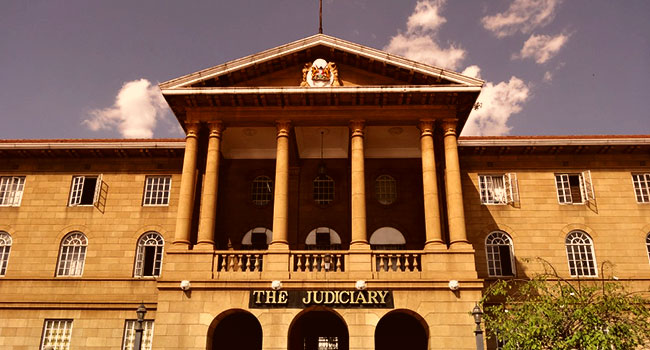Preparedness of the Judiciary in handling Elections disputes

As Kenya approaches D-day, various bodies playing an oversight role in guaranteeing free, fair and transparent elections are readying themselves to deal with any emergent issues. Such is the case at the Judiciary where various mechanisms have been erected resolve any disputes arising from Petitions pertaining the 2017 general elections. In the recent past there has been an eroded confidence in electoral institutions which include the Judiciary, Independent Electoral and Boundaries Commission, the Legislature, Kenya Police service among others.
Article 163 of the Constitution bestows upon the Supreme Court original jurisdiction to hear and determine disputes relating to presidential elections. Section 75 of the Elections Act of Kenya also stipulates that any questions arising from the validity of the elections of a governor shall be determined by the High Court within the County or nearest to the County. The Law further provides that a question as to the validity of the election of a member of a county assembly shall be heard and determined by the Resident Magistrate’s Court designated by the Chief Justice. A subsequent appeal shall lie before the High Court for determination.
The above laws, to mention but a few, illustrate the jurisdiction bestowed upon our courts to deal with any arising exigencies that may impede free and fair electoral results. The question that now begs is what has the judiciary done to ensure that 2017 General Elections uphold the fundamental principles and rule of law?
The Judiciary Committee on Elections (JCE)
The Judiciary Committee on Elections (JCE) was launched in August, 2015 by the Chief Justice as a permanent Committee of the Judiciary to spearhead preparations by the Judiciary to discharge its constitutional mandate of resolving all disputes and petitions relating to and arising from elections in Kenya. One of its main functions is to develop and implement, in conjunction with the Judiciary Training Institute, a training programme for the efficient and effective management of election disputes for Judges, Judicial officers and support staff.
Of priority was the need to put in place and strengthen an in-depth capacity building programme of the Judicial officers and the supporting staff ahead of the 2017 elections. This would be achieved by a comparative assessment of the training conducted in 2013 through identifying what worked and what did not work in order to come up with a baseline that would develop a comprehensive training programme and training materials for the 2017 elections.
The Chief Justice, David Maraga appointed Justice Msagha Mbogholi as the chairman of the Judiciary committee on Elections, JCE. The JCE is mandated to execute the following:
- Advise the Judiciary on the administrative arrangements and measures for the efficient disposal of election-related disputes.
- Develop and implement, in conjunction with the Judiciary Training Institute, a training programme for the efficient and effective management of election disputes for judicial officers and support staff.
- Develop and design a system for monitoring and evaluating the management and administration of election-related disputes in court.
- Liaise and co-operate with other stakeholders to ensure efficient, effective and timely resolution of election related disputes and offences.
- Advise the Judiciary on the information that needs to be developed and disseminated to the public through the avenues open to it to pursue electoral disputes and the approaches that will be employed.
JCE Preparedness
Amongst the measures put in place by the JCE include the appointment/gazettement of 92 Magistrates by the Chief Justice to preside over electoral disputes. The Judicial and administrative officers will not be allowed to take leave after the month of July to ensure that the cases involving electoral disputes are expedited. During this time, security officers will also be deployed in Court to safeguard the dispute resolution processes and the welfare of judicial officers. It is noted that the security of judges and magistrates has been threatened before due to the volatile nature of some electoral disputes.
The JCE also sought to allow more members to the Political Parties Dispute Tribunal. Currently, the High Court is now prepared to handle appeals from the Political Parties Dispute Tribunal.
The JCE will endeavor to adhere to the time limits for electoral dispute settlement to ensure that all the disputes are handled expeditiously.





